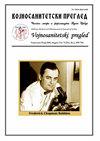社会营销策略对塞尔维亚共和国潜在生殖细胞捐赠者态度影响的实际分析
IF 0.2
4区 医学
Q4 MEDICINE, GENERAL & INTERNAL
引用次数: 0
摘要
背景/目的。在无法用自己的生殖细胞怀孕的夫妇中,或为了防止将遗传基因疾病传给孩子,使用第三方生殖细胞的需求不断增加。本文的目的是对社会营销策略的使用进行理论概述和实际分析,使用第一种技术来分析塞尔维亚共和国生殖细胞潜在捐赠者的态度,这将朝着更具体适应目标群体的方向发展。方法。本文的实证研究是基于塞尔维亚共和国女性和男性参与的关于生殖细胞捐献意愿和生殖细胞捐献信息的问卷调查。该数据于2021年获得。问卷调查是针对特殊人群的。调查问卷发给了年龄在20到34岁之间的人,他们可能是生殖细胞的潜在捐赠者。来自塞尔维亚共和国的201名男女参与了这项研究。第一部分对问卷进行内部一致性检验。采用Cronbach α系数计算(?)检验内部一致性。的值?小于0.5表示问卷具有不可接受的一致性。结果。在潜在捐赠者的目标群体中进行的实证研究得出以下结果:57%是通过互联网得知生殖细胞捐赠的,29%是通过朋友和家人得知的,11%是通过医生得知的。在塞尔维亚共和国,只有32%的参与者被告知生殖材料的捐赠,25.1%的参与者被部分告知,43%的参与者没有被告知生殖材料的捐赠。大多数参与者,54%的人说如果他们有更多的信息,他们可能会捐赠他们的生殖物质,20%的人会捐赠,26%的人拒绝捐赠生殖物质。结论。生殖细胞潜在捐赠者的目标群体存在于塞尔维亚共和国。除了对态度的分析之外,促进捐赠的进一步规划和执行措施可能会提高人们对缺乏生殖材料的认识,并增加配子捐赠者的招募。本文章由计算机程序翻译,如有差异,请以英文原文为准。
Practical analysis of social marketing strategies impact on attitudes of potential reproductive cell donors in the Republic of Serbia
Background/Aim. There is a constant surge in need to use third-party reproductive cells among couples with inability to conceive with one's own reproductive cells, or in order to prevent passing of an inherited genetic disease to the child. The goal of the paper is to present a theoretical overview and perform a practical analysis of the use of social marketing strategies using the first technologies of analysing the attitudes of potential donors of reproductive cells in the Republic of Serbia, which would go in the direction of more specific adaptation to the target group. Methods. Empirical research in the paper is based on questionnaire about willing to be donator of reproductive cells and about having information about donation of reproductive cells in which women and men in Republic of Serbia participated. The data was obtained during 2021. and questionnaire was focused on special group of population. The questionnaire was sent to people who were 20 to 34 years old, who could be potential donors of reproductive cells. 201 women and men from Republic of Serbia participated in the research. The first part of the questionnaires were tested for internal consistency. Internal consistency was tested by Cronbach alpha coefficient calculation (?). Values of ? lower than 0.5 refers that the questionnaire possesses unacceptable consistency. Results. Empirical research conducted within the target group of potential donors gave the following results: 57% were informed about reproductive cell donation through internet, 29% by friends and family, and 11% were informed by doctors. Only 32% participants are informed and 25.1% are partially informed about donation of reproductive material in Republic of Serbia. 43 % participants were not informed about donation of reproductive material. Most of participants, 54 % said that they maybe donate their reproductive material if they had more information, 20% would donate and 26% refuse reproductive material donation. Conclusion. The target group of potential donors of reproductive cells is present in the Republic of Serbia. In addition to the analysis of attitudes, further planning, and implementation measures for the promotion of donation could influence raising awareness about the lack of reproductive material and increase the recruitment of gamete donors.
求助全文
通过发布文献求助,成功后即可免费获取论文全文。
去求助
来源期刊

Vojnosanitetski pregled
MEDICINE, GENERAL & INTERNAL-
CiteScore
0.50
自引率
0.00%
发文量
161
审稿时长
3-8 weeks
期刊介绍:
Vojnosanitetski pregled (VSP) is a leading medical journal of physicians and pharmacists of the Serbian Army. The Journal is published monthly.
 求助内容:
求助内容: 应助结果提醒方式:
应助结果提醒方式:


